Archive for the ‘Main’ Category
The Penile Prosthesis Option: Patient and Partner’s Satisfaction
Numerous studies have shown high satisfaction rates with penile prosthesis implantation for both patients and their partners. In a series of 185 patients from a number of institutions, the authors reported a 98% patient and 96% partner satisfaction rate. Lower success rates have been noted in situations where there is an overall loss of penile length. In a multi-institution report from Italy surveying patients with penile implants and Peyronie’s disease, 79% of the patients were satisfied and 75% of the partners reported satisfaction with the result. In another study of 146 recipients of a two-piece penile prosthesis, the authors reported 85% satisfaction among the recipients, and 76% satisfaction among their partners. In some studies, inflatable and other prosthesis had been compared. Beutler et al. found increased satisfaction in men using an inflatable penile prosthesis compared to men receiving a no inflatable penile prosthesis, and, in another study, they showed greater satisfaction among female partners of men using inflatable compared to no inflatable prostheses. As previously noted, satisfaction domain scores for patients with corporal fibrosis and shortened penises undergoing revision prosthesis surgery are reported to be lower than other revision implant groups.
Patient satisfaction is a multifactorial issue and includes the degree of postoperative pain and swelling, postoperative complications, cosmetic outcome, device function, ease of use, and partner acceptance. The rapid development of erections and the consistently excellent rigidity obtained with a prosthesis are two major factors contributing to high levels of satisfaction. The major reason for dissatisfaction with penile prosthesis placement is shorter length of the penile erection. Other explanations for dissatisfaction include not feeling natural by the partner, reduced sensitivity and diminished drive, and the partner not having the same role in creating an erection as she once did. Another common patient complaint is the lack of adequate engorgement of the glans during sexual activity. Typically, the patient reports that the corpora cavernosa provide satisfactory rigidity after activating the implant but notes the glans that remains soft. One recent study reported on the beneficial effect of sildenafil on glans engorgement in patients having undergone penile implant. By using the IIEF, researchers documented that sildenafil caused a statistically significant improvement in implant-assisted intercourse. Similar results were reported in a case report which showed the benefits of administering 500 mg of transurethral alprostadil (MUSE, Vivus Inc, Mountainview, CA) on demand in patients with self-contained inflatable penile prostheses. Viagra best price Australia – www.myviagrainaustralia.com
It is recognized that patients with Peyronie’s disease, radical prostatectomy, or a BMI >30 kg/m2 have a statistically significant reduction in their level of satisfaction compared with the general implant population. It is likely that penile length issues play a large role in the Peyronie’s disease and radical prostatectomy patients in this regard. It has not been clearly delineated why a BMI >30 kg/m2 should be associated with reduced satisfaction, but mechanical issues relating to the prepubic fat pad size have been noted in many of these men.
Summary
Penile prosthesis is a safe and effective therapy for ED of various causes, including ED refractory to first and second-line therapies. Current options for prosthesis include malleable and inflatable, and the inflatable option includes various two-and three-piece models. Preoperative preparation requires meticulous sterilization procedures, including prophylactic antibiotics and chlorhexidine scrub. Implantation can be accomplished either penoscrotally or infrapubically, with the advantages of the penoscrotal approach being avoidance of the dorsal nerves of the penis and ease of pump anchoring. There are a variety of complications that can occur postoperatively cheap priligy Australia, but infection is the most concerning. If infection does occur, the surgeon can elect to remove and replace the prosthesis at a later date or attempt a salvage procedure. Patient and partner satisfaction have been reported to be high in many studies.
Herbs for Herpes, do They Work?
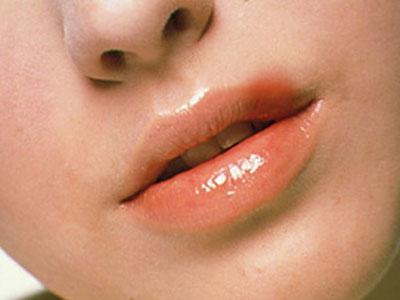
There are lots of herpes herbs offered on the net. Some claim to kill the virus. Some claim to prevent herpes outbreaks. Very few have a money back guarantee, which says a lot. In this article I am going to give you some of my thoughts, on both types of herbal products.
First, let’s look at the herbal products which claim to kill the virus. Well, some of them probably do kill the virus. That is, they kill the viruses that are at the surface, causing the outbreak. (This applies to cold sores too). By killing the virus topically like this, it can reduce the healing time, which is a good thing of course. But it means you still suffer with outbreaks, though they may be shorter in duration. But the virus is still in your system after an outbreak heals. It has just gone into remission, and will surface again. And again, unfortunately.
If you find a site that has a product that promises to kill all of the viruses in your whole body, it is probably bogus. This would actually be a cure for herpes. And when and if the day comes that there is a cure for herpes, it will be big news!! It will be on the cover of Time Magazine, and on CNN! If such products really worked like they say they do, it would be an overnight sensation and everyone would be talking about it. (Well, at least those of us with herpes, would be talking about it. We are 1 in 5, which is a huge percentage of the population.)
Second, there are herpes products which claim to prevent outbreaks, and this group is more credible. Some use Chinese herbs which have been used for centuries in China, and some Chinese herbs have verifiable results. Well, how can herbs prevent herpes outbreaks? These herbal products are much different than herbs which are claimed to “attack” or “destroy” or “kill” the herpes virus. The herbs do not actually interact with the herpes virus at all.
What these herbs for herpes do is strengthen your immune system. When your immune system is strong, it is able to keep the virus in remission, so you do not have outbreaks. Think about this…. you probably had measles, chicken pox or the mumps when you were a child. Well, those viruses are still in you! But in a normal adult with a reasonably healthy immune system the viruses are kept in remission quite easily. About half the people who get herpes don’t have outbreaks. It is because they have been blessed with a stronger immune system than the other half of the people who do have outbreaks. They are able to keep the herpes virus in remission just like most people are able to keep their chicken pox or measles viruses in remission. When is the last time you gave a thought about getting the measles? How the herpes herbs work is to strengthen your immune system, so that you too can keep the herpes virus in remission.
A Guide to Natural Herbal Products

With all the health scares making their way in the news, it’s no wonder why people are now choosing more natural herbal products for their health needs. If you find yourself wanting to try the said items, here are some Q&A’s that could help you find out more about it.
Have I consulted my doctor about it?
People who want to try natural herbal products should always consult their doctor first to see if the doctor will approve. Your doctor is your first and perhaps your best shot at getting the healthy lifestyle you crave. It’s vital to get his or her word when it comes to anything you’ll have to drink or eat because all these may have an impact on the drugs he or she prescribes to you. Since your doctor is an active medical professional, he has more experience and more knowledge regarding health and supplements than you can even imagine. Your physician’s input will be vital if you don’t want to suffer from any complication brought about by something as harmless-sounding as natural herbal products. If you don’t consult with your doctor, you’ll be taking a big gamble on your health and money. There may even be a chance that you can just keel over and die if you decide to take this risk.
Is it safe?
While there are many companies advertising their products as natural, you should still read the labels carefully. The labels on the products will usually indicate how “natural” the product really is. Some companies state that their products are “all natural,” but in truth when one reads the labels there may be 50% artificial ingredients there. Reading the label is always a must if you don’t want to end up ingesting something you don’t want inside your body.
Another cautionary measure you should employ is to see if the marketed natural herbal product falls under FDA guidelines. You can try contacting this government agency to see if this product is legal in the US to safeguard your health. You can also check the manufacturer’s background online to see if they have business and health licenses to operate in your area.
How much is it?
It depends on where you’ll buy it because some stores may charge higher prices than the others. This situation happens because of factors such as store prestige and location, which can inevitably add to their prices. For instance, if the store is in a popular mall or in a well-known business center, then chances are they could charge customers higher for their location convenience. Knowing this should have you checking which stores near your home or workplace have the best prices offered. You can also try buying herbal supplements online as there are some herbal online companies that offer bigger discounts. Some web-based companies can even provide lowered prices especially if you buy their herbal supplements online by the bulk.
You can buy natural products on the website of Himalaya Herbal Healthcare. This legacy of researching nature forms the foundation of Himalaya’s operations. Himalaya uses the tools of modern science to create pharmaceutical-grade ayurvedic products. They have pioneered research that has converted Ayurveda’s herbal tradition into a complete range of proprietary formulations dedicated to healthy living and longevity. Today, these products have found acceptance with medical fraternities and serve the health and personal care needs of consumers
The stated suggestions are there to give you a better view on natural herbal products. If you think this can be for you, it may be useful to buy it in small portions first to see its effectiveness. Buying small is playing safe in this case because you won’t have to spend large amounts on something that won’t work in the end.
Herbal Teas for Preventing Breast Cancer
In recent years, much research has been done on ways to prevent breast cancer and other disease. Much of the research has focused on green tea, which has been shown in many studies to have cancer preventing qualities. So much research has been done, in fact, that Japan’s medical community now calls green tea a known cancer preventative, and other medical communities are expected to follow suit.
One recent study, however, suggests that herbal teas may be effective in preventing breast cancer, too. The UK Tea Council reported on a study conducted on over 4000 French women with no history of cancer. The women were studied over a 6 year period, and received a mammogram and other cancer screening tests every two years during the period. In addition, the women were evaluated based on the particular beverages they consumed, including herbal tea, regular tea, coffee, fruit juices and wine.
By the end of the six year period, 95 of the participants had developed breast cancer. However, the study could not find any link between any of the beverages consumed and an increased risk of breast cancer. Surprisingly, however, they did find that the women that consumed herbal teas had a slightly lower risk of developing breast cancer than those women who consumed other beverages.
Herbal tea, of course, is not really tea at all. Rather herbal teas, also known as tisanes, are really infusions of one or more herbs. They are made with hot water and taken like tea, hence the name; but true herbal teas contain no leaves from the Camilla sinensis plant, the tea tree. However, herbal teas can have many useful purposes, and are used to treat many discomforts naturally.
Just as they are thought to have discovered traditional tea, it is believed that the Chinese discovered herbal teas, too. Herbs were widely used in ancient medicines, and the Chinese, were the first to combine the healing properties of herbs with the enjoyment of tea. Brewing a tea from the correct combination of herbs may simply have been the easiest way to administer the medicine.
Herbal teas were not widely used in the Western world until the last 20 years, though Asian cultures have continued to use them in conjunction with modern medicine. However, in the last few years, herbs have become popular in the rest of the world for relaxation and as alternative medical treatments.
Statistics show that today consumers spend about $120 million on herbal teas at major supermarkets, and that figure is growing at a rate of about 10% per year. So, you can see that herbal teas make up a significant portion of the beverages consumed in the Western world. Most people who drink herbal teas buy commercially produced loose teas or tea bags. And, this is considered the safest way to consume herbal teas. Making your own brew from plants you’ve picked in the wild is risky, at best.
If you’re taking prescription medication, be sure to consult with your doctor before making herbal teas part of your regular routine. Some herbs have been known to have interactions with medications. But, as long as your doctor approves, there’s no reason to avoid herbal teas, whether for health protection or just for pleasure.
There are dozens of different types of herbal teas available. In fact, one of the pieces of information not noted in the study mentioned above was what kind of herbal teas the study participants drank. But, if you’re interested in trying them, here are some of the most popular varieties.
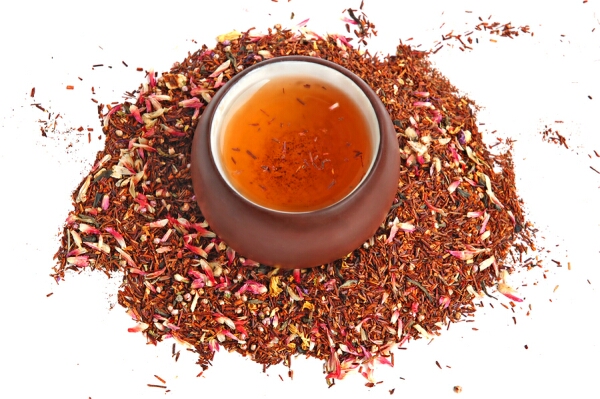
Rooibos – This is an herbal tea whose base is the South African Rooibos herb -it’s often referred to as red tea. You’ll find this tea delicious and sweet on its own, but it can also be found flavored with other fruits.
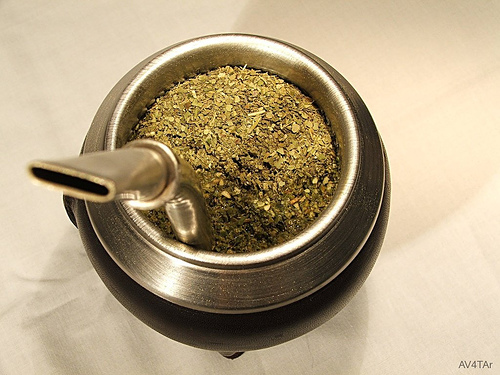
Yerba Mate Herbal Tea – This tea is made from the South American herb Yerba Mate. It is very healthy; full of anti-oxidants and vitamins and is said to give energy.
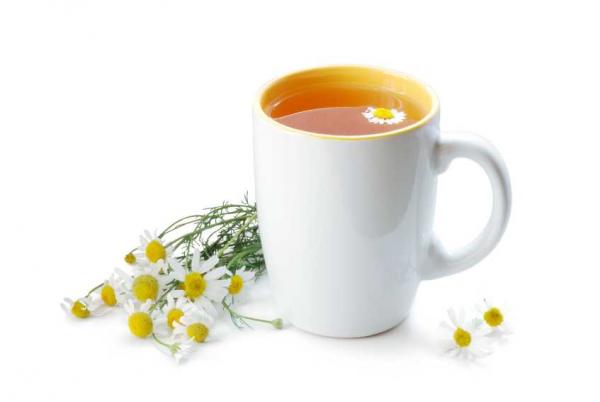
Chamomile – This is a traditional herbal tea made from the chamomile plant. Chamomile has been used for centuries to induce sleep and relieve upset stomachs.
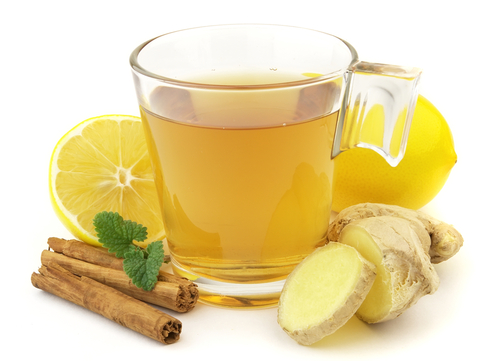
Ginger Tea – Spicy ginger has been used for centuries to make tea. It’s delicious and also highly regarded as a treatment for nausea. Ginger tea is an especially good natural treatment for morning sickness.
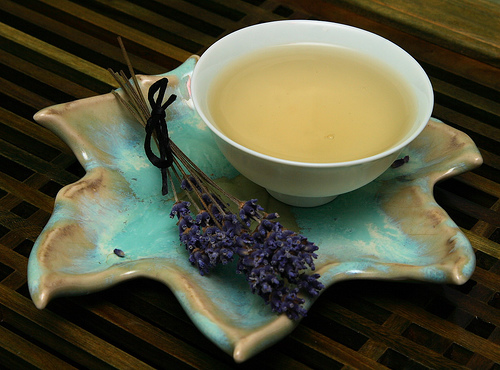
Lavender Tea – Tea made from the lavender plant has been used for many years to help calm the soul and induce sleep. A weak brew of lavender can be used to calm a colicky baby, too.
Herbal teas can be a wonderful addition to your diet. They can be used to treat minor ailments and provide a feeling of calm. And, now that there’s evidence that herbal teas may help prevent breast cancer, they can become part of your regular health protecting routine.
Protecting yourself from cancer includes living an overall healthy lifestyle. This includes getting regular exercise, eating a diet that is low in saturated fat and rich in fresh fruits and vegetables and not smoking.
Be sure to include the most potent anti-oxidants in your diet too, like those found in blueberries, artichokes, pomegranates and green tea. Following these guidelines and adding a cup or two of herbal tea, as well, can help you protect your health for years to come.
Efficient Herbal Medicine For Diabetes
Although the use of insulin has been widely regarded as the top remedy for diabetic patients, herbal medicine for diabetes is also proven to be quite as beneficial. In fact, findings reveal that native people in some parts of the world who are plagued with diabetes, fully utilize certain herbs and plants to treat the said condition. The following reveals these herbs which are commonly used as an alternative to help cure diabetes.
Aloe Vera – is a cactus-like plant also popularly known as a ‘healing herb,’ and is usually located in dry, deserted countries. Not only is Aloe Vera widely used as treatment to burns, wounds, and also applied as an after-sun lotion, but the gel and sap derived from the leaves, aids in the treatment of diabetes. This household plant is even known to lessen rapidly increasing blood glucose levels.
Ginseng – is a plant or herb possessing medicinal elements, and other antioxidants known to treat certain conditions especially diabetes. Ginseng is also classified into various plant species like the Korean and Japanese ginseng, among others. However, further studies still need to be conducted to prove the effectiveness of ginseng in treating diabetic patients.
Coccinia indica – commonly found along the Indian subcontinent, Coccinia indica is known to contain elements which replicate the function of insulin and considered a good alternative in treating diabetes. Yet, more tests still need to be done to ensure the efficiency of this herb known as the ‘ivy gourd,’ according to experts.
Opuntia streptacantha – like the Aloe Vera, this herb also exists on dry regions such as the Mexican desert, and is popularly known as the prickly-pear cactus. Scientific studies conducted on animals reveal that the plant possesses properties equipped lessening levels in postprandial glucose as well as HbI1c. Again, more studies are still required to fully support claims on the herb’s anti-diabetic functions.
Allium sativum – widely known as garlic, allium sativum is known to contain lots of antioxidants that help decrease levels of blood glucose, quite similar to the effects of insulin. It is also considered to elevate the process of secretion as well decreasing the weakening of insulin. Previous results have been quite positive although further tests are required to solidly back up claims on its effectiveness.
Ficus carica – this herb known as a fig leaf, is popularly utilized in some parts of Europe to help cure diabetes as well as assist in the uptake of glucose. Still, the properties of Ficus carica are unknown, requiring more tests for it to be a credible remedy to patients with diabetes.
Trigonella foenum graecum – located in parts of the Mediterranean as well as North Africa and India, this special herb known as fenugreek is commonly used in cooking but also considered to be beneficial in the treatment of type 2 diabetes. Thorough analysis is still needed to support its credibility.
Silibum marianum – considered to be a member of the aster family, this herb known as the milk thistle comprises of antioxidants as well as flavinoids, known to have a probable effect on the resistance to insulin. These are among various probable options to aid in diabetic treatment, and herbal medicine for diabetes. More studies are required.